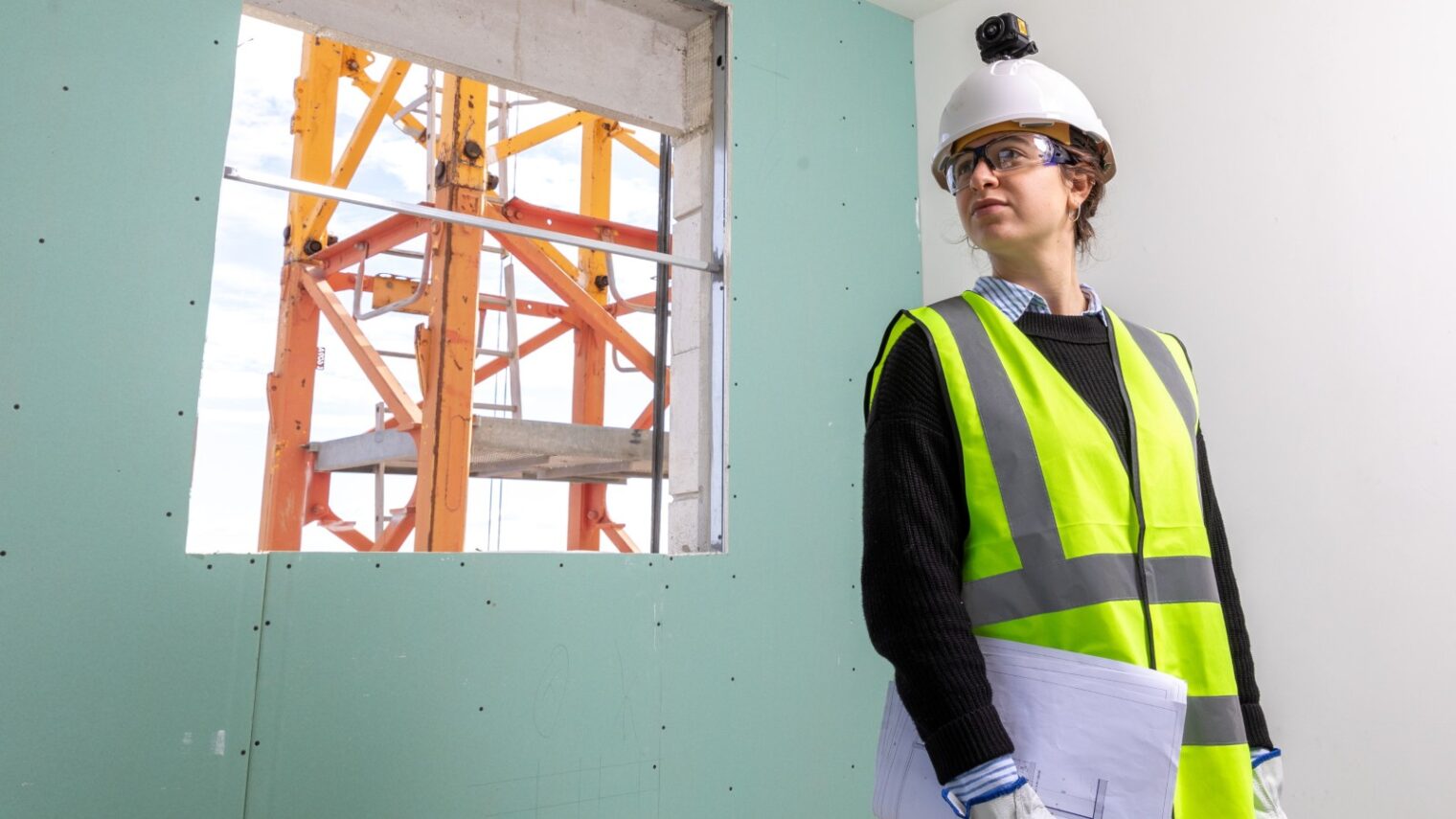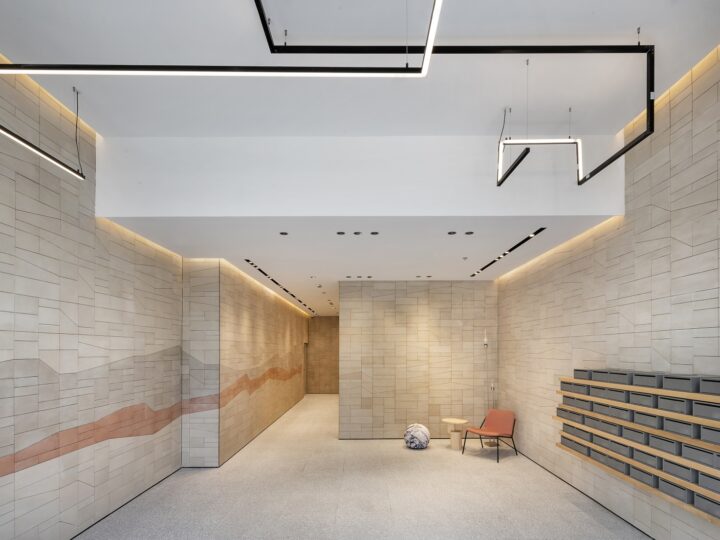Israelis often joke that the crane is our national bird because the horizon of this young and growing country is dominated by construction cranes.
Many construction projects drag on for years, causing cost overruns and traffic snarls. Now, Israeli innovators aim to help the construction industry improve safety, productivity and efficiency.
“TLV ConTech & PropTech 2020,” held in November, presented 35 Israeli construction and real-estate technology companies to some 1,000 participants around the world.
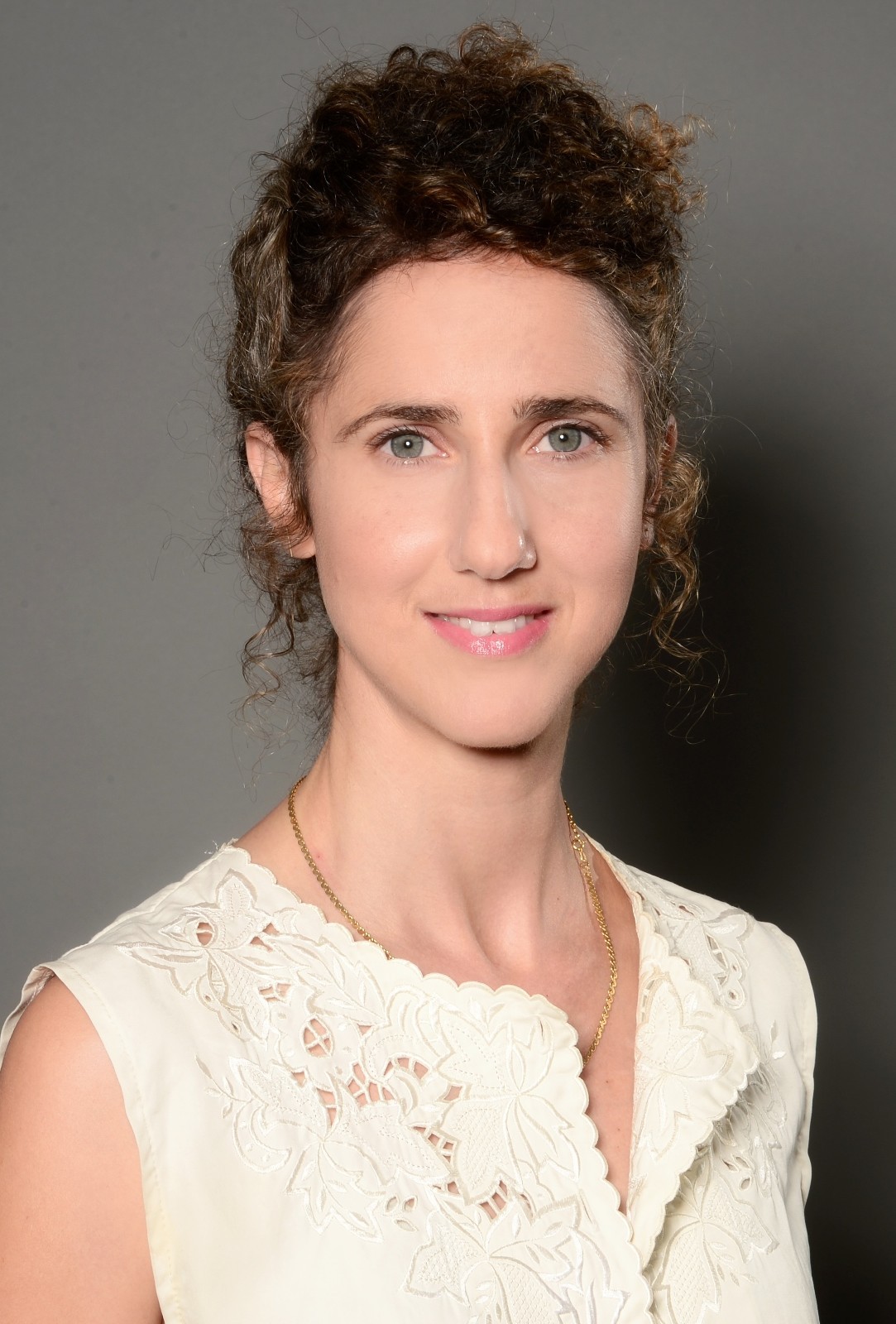
“In the past two years we saw a lot of engagement from overseas in con-tech and prop-tech,” says Noa Aharoni, head of the cleantech and smart infrastructure unit at the Israel Export Institute, which sponsored the virtual conference with the Foreign Trade Administration at the Ministry of Economy and Industry.
“Our first national pavilion at BAU, the world’s leading trade fair for architecture, materials and systems, in 2019 was a great success. We now have three to five business delegations, webinars or business meetings every month.”
Aharoni tells ISRAEL21c that innovation-focused multinationals “look to Israel to make the industry more IT and data-based, to put more intelligence into the processes.”

Ayelet Ben-Arav, VP Business Development at Elbit Systems’ Incubit Technology Ventures, compares construction-tech to auto-tech, a field that was slow to develop and in which Israel became a strong player.
“Construction-tech is considered a risky investment because it is a conservative industry. That will probably change, as automotive tech did in the past 10 years,” Ben-Arav tells ISRAEL21c.
Elbit is a defense contractor known for advanced image processing products. Incubit, its VC arm, has 17 portfolio companies whose deep-tech innovations fill unmet needs in civilian markets unrelated to defense “but which have a technological synergy with Elbit for the future,” says Ben-Arav. Two of these (GreenVibe and UltraWis) are in construction-tech.
Factors pushing forward construction-tech in Israel include tragic accidents at construction sites and a manpower shortage.
“Construction people know they need a digital transformation. We can help guide them through this so they can work safer and more efficiently,” Ben-Arav says.
Here are 10 Israeli companies to watch in this budding field.
UltraWis
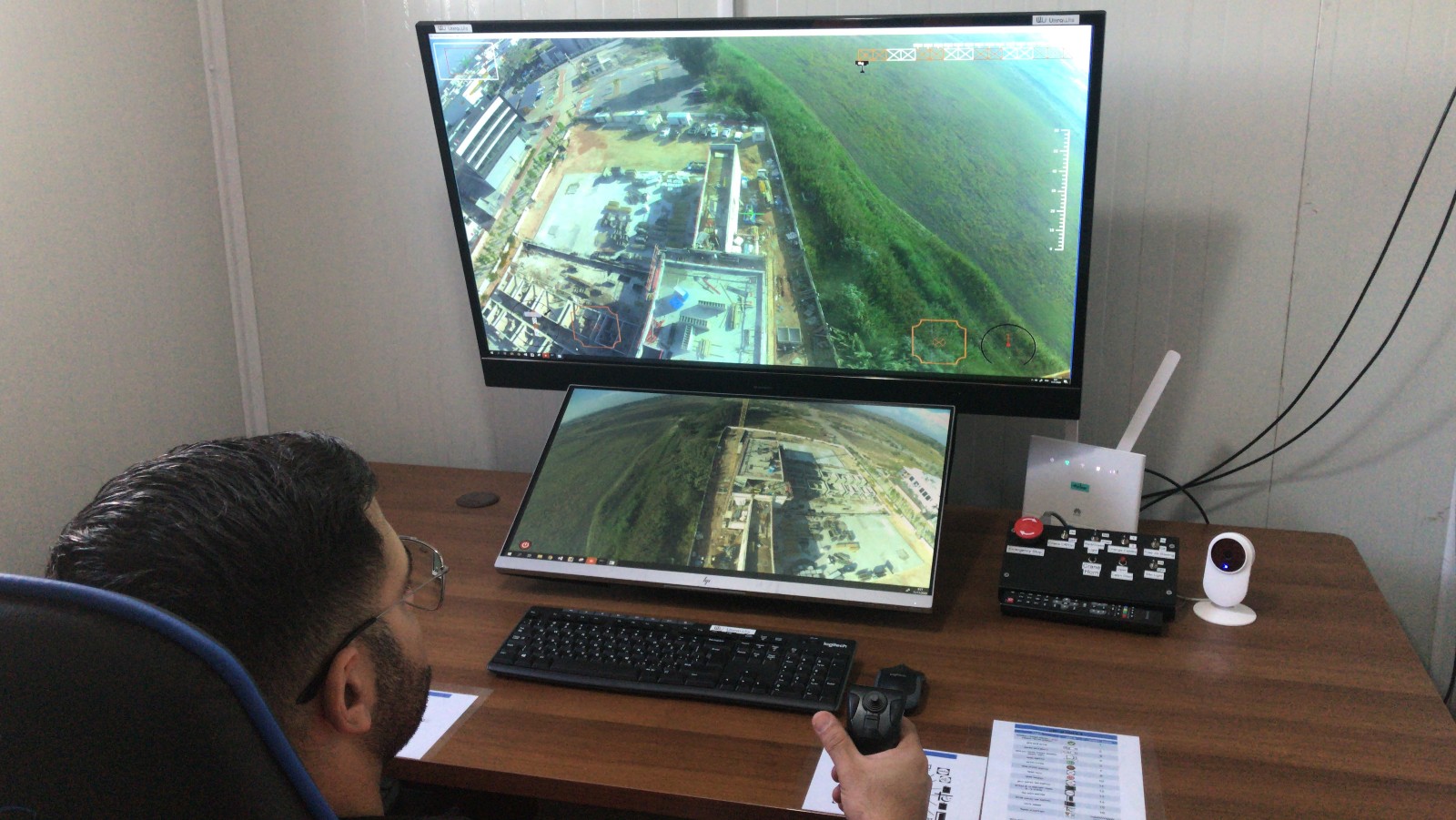
Lior Avitan dreamed up UltraWis from looking out the window of a University of Haifa classroom in 2016. He was earning his MBA while working as the project manager for Elbit Systems’ Brightnight night-vision program.
“They were building on the campus, and I saw that the crane operator was sitting in the cabin of the crane all day. I had an idea to take aircraft technology from Brightnight and make it available to improve efficiency.”
Bringing the crane operator down into a “cockpit” on the ground enables safer and smoother operation. A 3D real-time model of the site, using machine vision and augmented reality graphics, is displayed on high-definition screens, integrating data from electro-optical sensors installed on the crane.
UltraWis was cofounded in 2019 by Avitan and Erez Gernitzky (the latter having been responsible for imagery processing and algorithms at Elbit) with 14 patents licensed out by Elbit, its major shareholder. The National Insurance Institute awarded it money from its fund dedicated to preventing work accidents.
Following a successful trial, UltraWis is in negotiations with several multinational original equipment manufacturers (OEMs) and construction companies in Europe and Israel.
Versatile
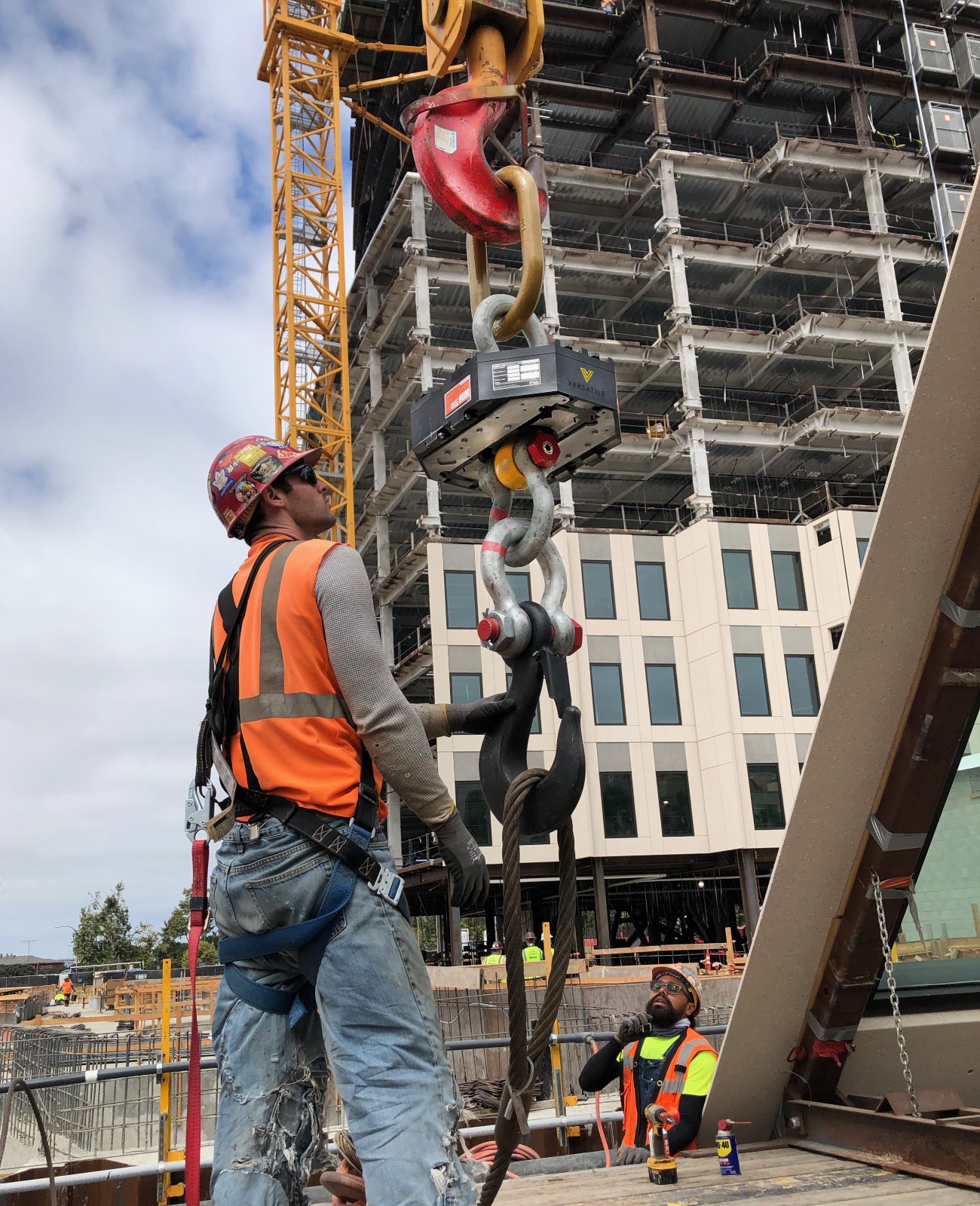
Versatile packs AI and IoT capabilities into its CraneView camera-and-sensor system.
Hooked onto the crane, CraneView measures thousands of data points — load, weight, motion, rigging, unrigging, material, location, tasks and idle times — and displays them instantly on a mobile app to enable smart project-management decisions onsite or remotely.
Clark Pacific, a California-based manufacturer of prefabricated building systems, recently reported that Versatile’s CraneView increased productivity to the point where it reduced overtime by half on six parking structure projects. Plus, Clark Pacific saved $40,000 to $60,000 per project due to CraneView and analysis of the data it captured.

Last June, Versatile became the first construction-tech company named a Technology Pioneer by the World Economic Forum.
Versatile, based in Tel Aviv and California, was co-founded in 2016 by Danny Hermann, Barak Cohen, Ran Oren and Meirav Oren; the latter is one of the few female founders in this sector.
Trusstor
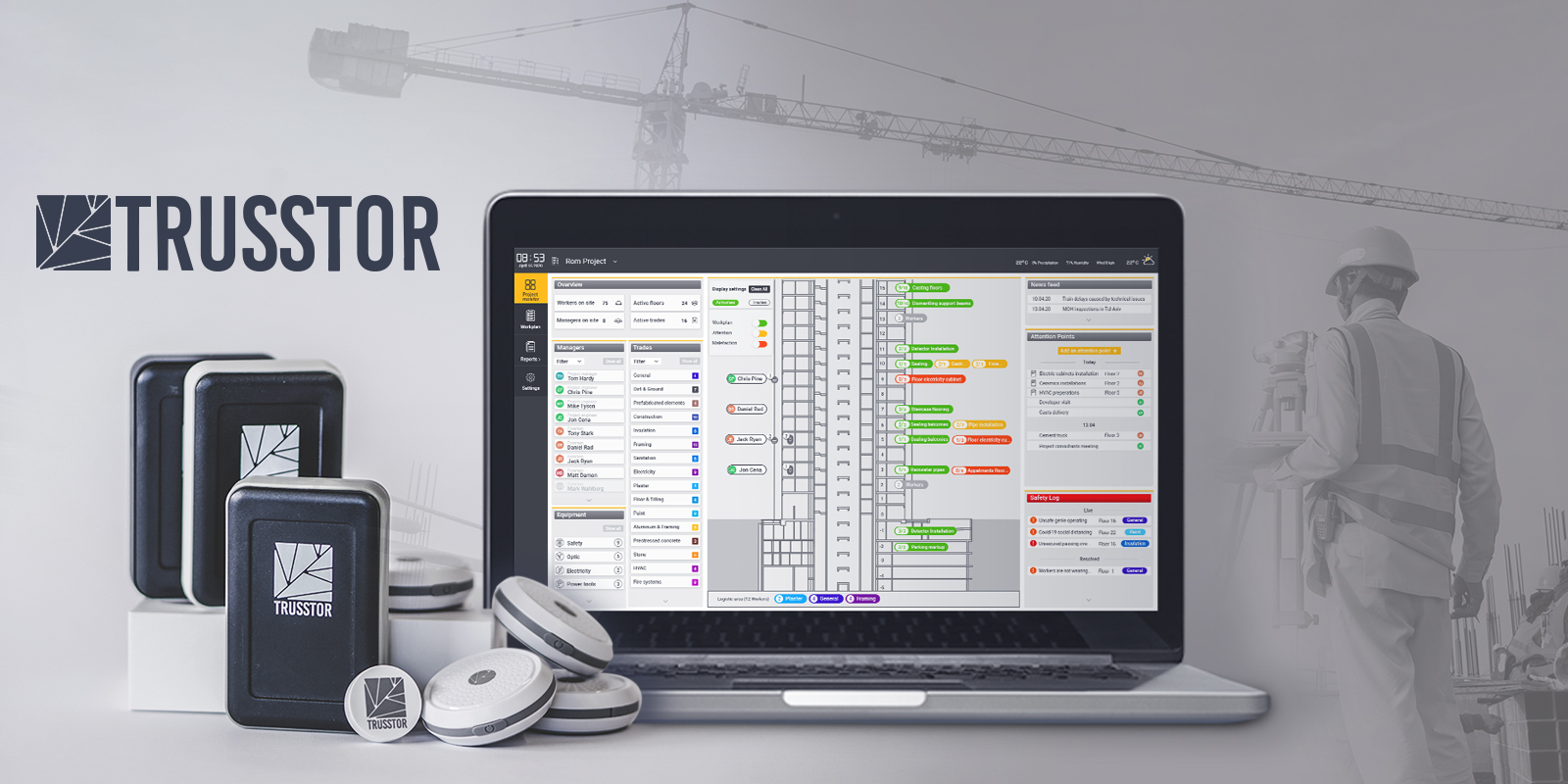
Trusstor cofounder Omri Sorek has degrees in law and business, but his family has been in the building business for five generations and he understands its unique workflow and workforce management challenges.
He established Trusstor in 2019 with Ofer Simon, a communications system engineer and serial entrepreneur, to provide “construction intelligence” for enhanced decision making and accident avoidance.
A proprietary real-time location system, combined with sensors measuring everything from humidity to noise levels (and even social distancing and epidemiological inquiry during the Covid-19 pandemic), conveys data, insights and alerts to a command-and-control dashboard.
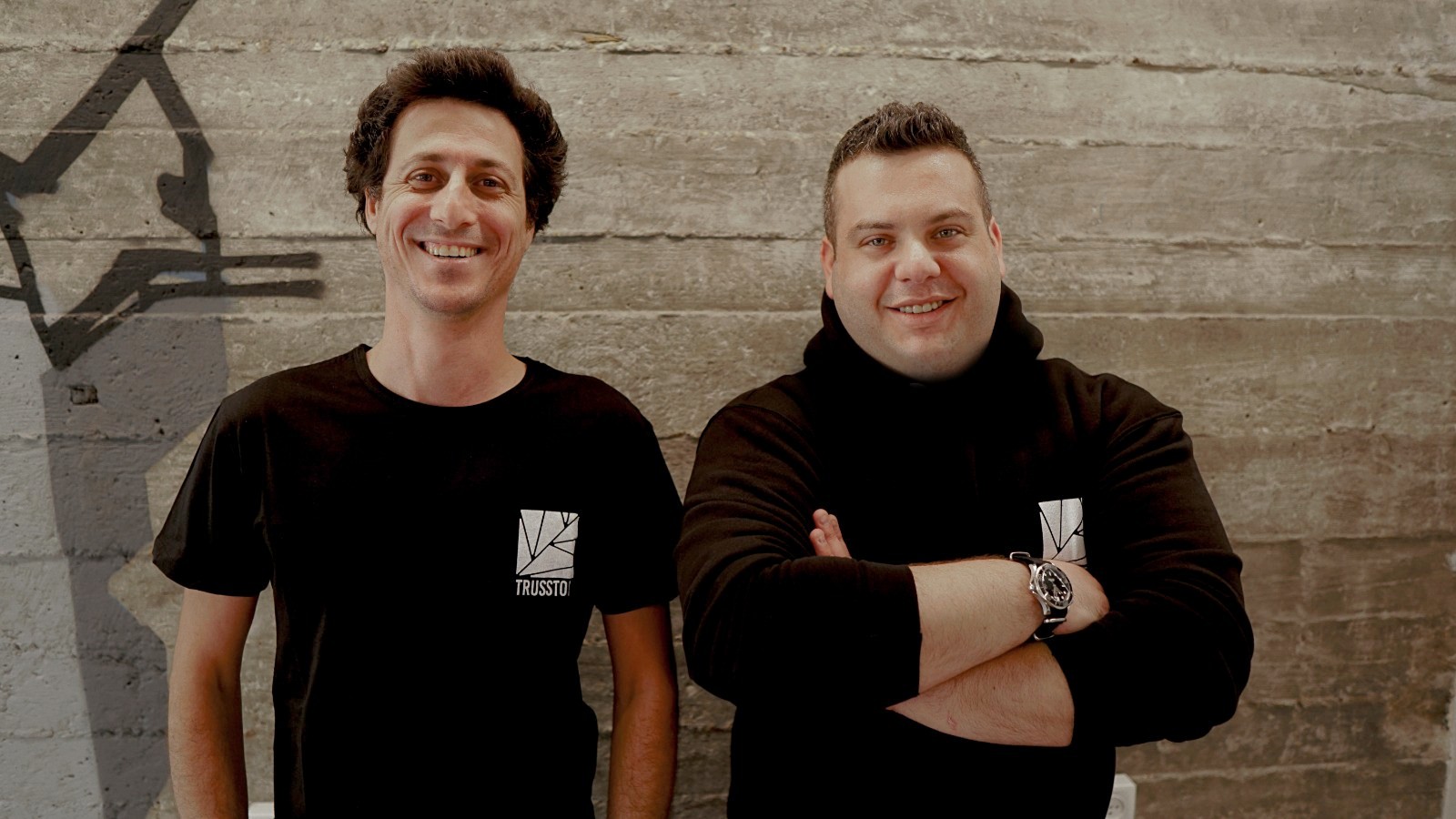
“It’s a plug-and-play solution for complex problems,” Sorek tells ISRAEL21c. “We just did a full setup of our system at a 55-story building site in Tel Aviv in less than a day.”
Trusstor runs on batteries and doesn’t need any external power source or communication protocol such as Wi-Fi. Nor does it require manual data input. Data is integrated automatically through partnerships with companies including US-based NextWave Safety, a German scaffolding company and Israeli, Italian and Japanese firms.
Following successful pilots, Trusstor is starting integrations with Israeli construction companies and will next target the East Coast US market.
GreenVibe
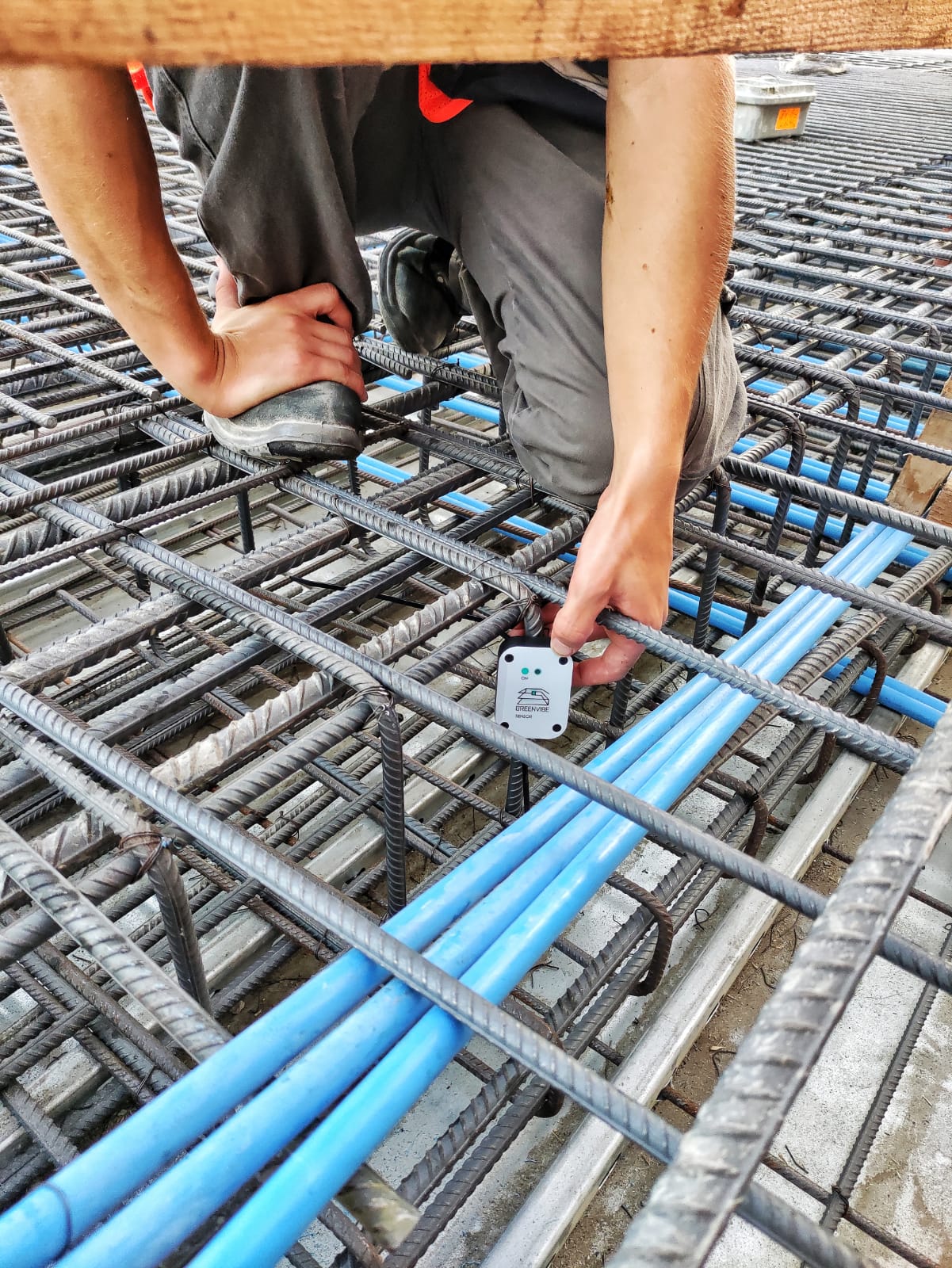
Did you know that concrete is the most common substance on earth besides water?
And yet, this mixture of water, sand/gravel aggregates and cement is the source of many bottlenecks and cost overruns. There’s too much guesswork in making concrete fit climate conditions and strength needs, and gauging when it’s hard enough.
“It’s a huge industry lacking data about the characteristics and readiness of concrete,” says Roee Reshef of the 18-month-old startup GreenVibe, founded by Elbit engineers Oran Weiss and Oleg Naigertsik.
“Each concrete company has someone who has the knowledge but it’s very local and very limited. We want to use AI to get more data and insights to everyone who needs it,” says Reshef.
Using three generations of sensors, GreenVibe informs clients in real time how to deliver the right concrete to each project, considering variables such as weather and distance to the job site.
The company is in the pilot stage with two leading Israeli companies, Reshef tells ISRAEL21c.
“The first segment we are targeting is general construction mega projects like high-rises, precast concrete factories, infrastructure companies and concrete suppliers. We already have letters of intent in hand as we finish developing our sensor technology.”
Buildots
Based in Tel Aviv and London, Buildots incorporates AI, computer vision and wearable sensors into a portable “mission control” digitized platform for detecting, tracking and managing activities on construction sites.
CEO and cofounder Roy Danon says Buildots lets workers collect data passively as they move around the construction site.
“This way, managers can manage instead of chasing data. The data is then analyzed to provide automatic insights, alerts and reports to help improve the process, monitor pace and progress and identify any anomalies.”
The product has been on the market since late 2019 and is in use by construction companies in Israel, Europe, Japan and the United States.
Samson Logic
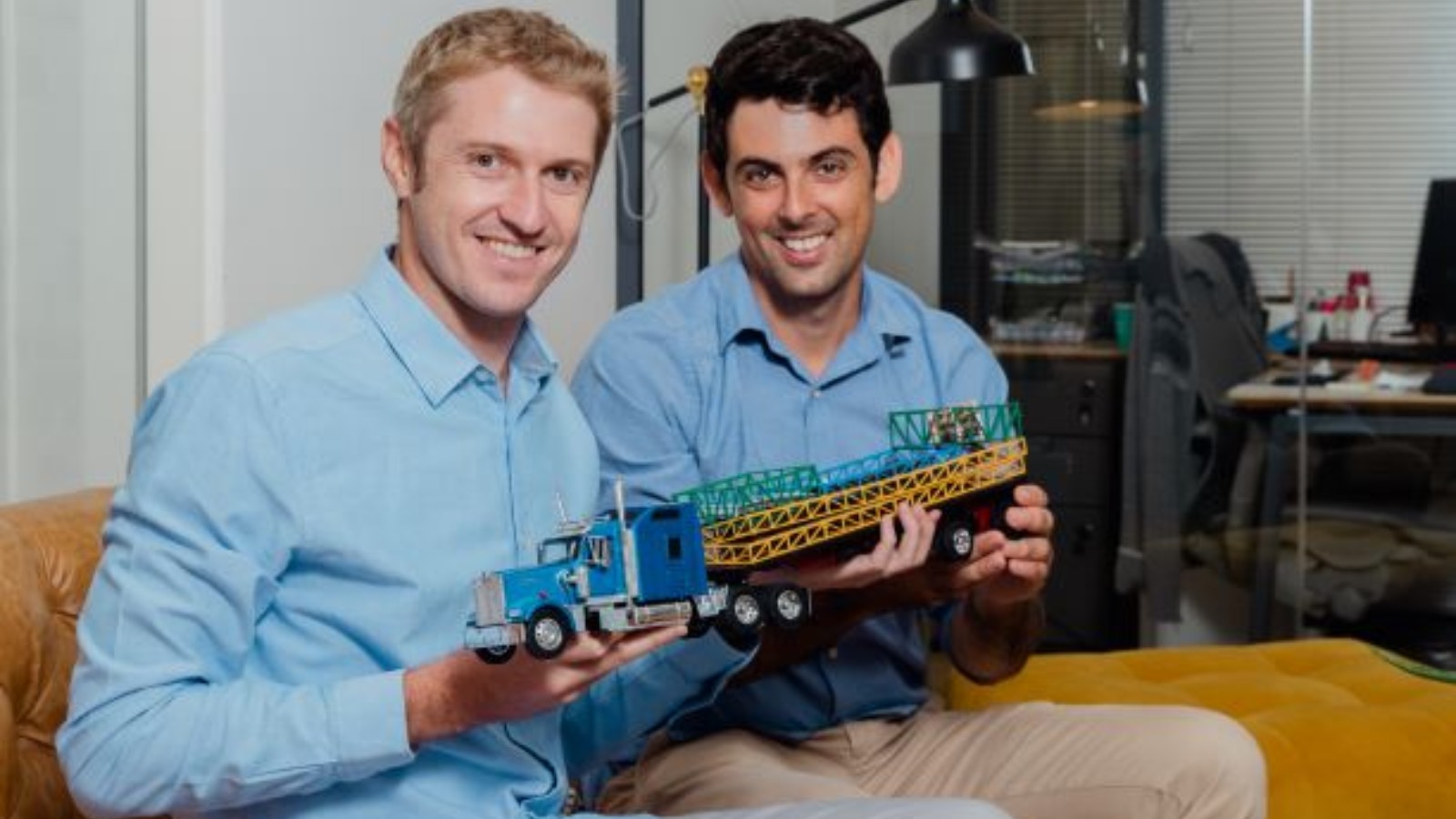
As a construction site engineer and project manager, Shai Prupes saw many efficiency and safety problems in how materials are packaged, stored and (mis)managed onsite.
He and three cofounders from the industry established Samson Logic to solve these problems.
Samson’s software converts orders of raw materials into instructions for packaging materials neatly according to the work stages, the lifting capacity of the crane and in accordance with transportation regulations.
The smart packages stack like LEGO for efficient transportation, lifting and mounting. Integrated IoT sensors track materials at each stage, integrating with software for safety alerts and inventory management.
“We are now concentrating on rebar, the most complex construction material,” Prupes tells ISRAEL21c. “But our system will be applicable for all construction materials so they will never be lying loose on the ground where they can get lost or damaged.”
The product is being piloted with two of Israel’s largest construction companies and rebar manufacturers. Among Samson’s investors is US building materials logistics software company ASA (Applied Systems Associates).
“In a few months we will be ready to start our commercial activities. We will start in the Israeli market, and we are applying to work on a large infrastructure project in cooperation with Celsa Steel UK, the largest rebar factory in Europe,” says Prupes.
Holoarch
The ARspector Smart Augmented Reality Helmet from Holoarch lets construction-site inspectors compare what’s happening in reality against a virtual blueprint.
If something looks wrong, they can report the problem immediately by snapshot, video and/or voice in real time.
“The main problem we solve is the domino effect,” says engineer and CEO Zahi Younis, who founded Holoarch with his brother, software engineer and CTO Mohamad Younis.
“Sometimes there are errors in the building process, and when a measurement is taken from the last point finished, it will be wrong if the last point was done wrong. This starts a cascade of incorrect measurements. The AR helmet finds that first error, so the next error won’t happen.”
Holoarch is a portfolio company of the InfraLab innovation center in Haifa. InfraLab is run by Enel, the world’s largest electricity infrastructure company, and Shikun & Binui, Israel’s leading construction and infrastructure group, for the Israeli Innovation Authority.
The nine members of the team encompass Muslims, Jews, Druze and Christians.
“We cofounders are coming from the Arab minority that is more involved in construction here in Israel, so we hear about things that need improving,” Zahi Younis tells ISRAEL21c. “We believe we can solve many of these problems with our AR helmet.”
A three-month pilot project with an Italian company is underway, and Holoarch has been approached by construction companies in Israel, Europe and the United States eager to use its technology.
LightYX
LightYX, another InfraLabs portfolio company, is developing an augmented-reality BeamerOne robotic system that projects blueprints, via laser, onto any construction surface, enabling workers to visualize the task at hand andspot quality-control issues.
Okibo
Okibo has developed a battery-operated robotic platform that moves freely around indoor construction sites performing wall and ceiling finishing tasks such as joint taping, plastering, sanding and painting.
Automating these types of on-site construction jobs avoids exposing human workers to potential risks, such as working at heights and working with toxic materials, the company explains. The robots can work alongside humans or on their own, 24/7, guided by accurate 3D scanning of the environment.
Okibo was the only Israeli company chosen as one of the 50 most promising startups in the construction ecosystem of 2019 by CEMEX Ventures, Boston Consulting Group and innovation sector monitoring platform Tracxn.
ECOncrete
Rising seas, record-breaking storms, and intensive waterfront development
have led to more concrete infrastructure projects along our coasts. But all that concrete can ruin fragile shallow-water ecosystems.
ECOncrete developed environmentally sensitive concrete products that promote marine biodiversity while increasing the structural stability, longevity and aesthetics of urban waterfronts and coastal structures.
ECOncrete CEO and Chief Scientist Perkol-Finkel and CTO Ido Sella earned their doctorates in zoology from Tel Aviv University. Their startup appeared on the TIME Top 100 Inventions of 2019 list and Fast Company’s most innovative companies list.

“Ocean health and human health are entwined. We can’t protect our coastlines while destroying fragile coastal ecosystems. This is where biomimicry can come to play: by drawing inspiration from nature and designing environmentally-sensitive coastal protections that benefit humans and marine life as one,” said Perkol-Finkel.
ECOncrete won first place in the Prop&Contech Innovation Contest sponsored by BuiltUp Ventures and the Israeli Export Institute at the TLV ConTech & PropTech conference.
Second prize went to sustainability designer Adital Ela’s Criaterra, which fabricates eco-innovative materials as strong as concrete.




